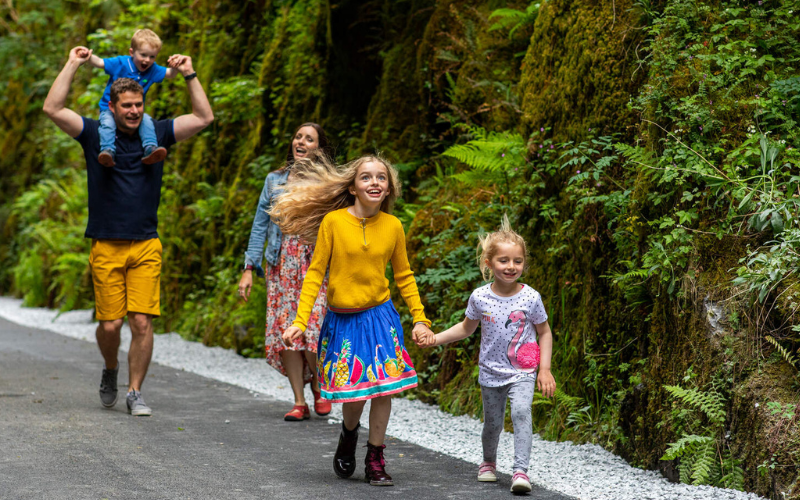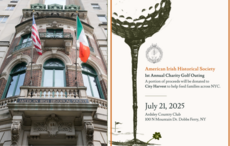The Walker family was living in Houston, Texas, for just three weeks when they made a remarkable discovery that would change their lives forever.
When Dubliner Debs Walker and her American husband Josh moved to the U.S. with their three children Jack, Sophie and Elysia in 2005, little did they expect the massive changes that would happen to their family but three weeks after their arrival, they made a discovery that would change their lives forever.
On the side of a street close to their new home in Houston, Texas, they came across a three-month-old baby boy.
“He was starving,” Walker told the Irish Times.
“We found his mom that night. She couldn’t take care of him, so she asked us to keep him until she got herself together. She had grown up in the state foster care system and didn’t want her son in it.”
Read more: This charity has been building peace in Northern Ireland for nearly 40 years
Three weeks after moving with their three children from Dublin to Texas, Debs and Josh Walker found a three-month-old baby on the side of the road. The surprise discovery changed their lives. https://t.co/OgbZe5W5i8 #Irishdiaspora
— Irish Times Abroad (@ITabroad) April 13, 2018
Signing on to “babysit” the little boy until his mother was ready to take him back, as it turned out, she realised she would not be in a position to start looking after him again any time soon and so asked the Walker family to adopt Isaiah, a prematurely-born baby who was suffering Respiratory Syncytial Virus (RSV), a lung condition.
For the first three months of his life, he had been fed just once a month and was severely malnourished and in a lot of pain.
“Helping her, him and going through his subsequent adoption threw us into the underworld of Houston’s homeless community,” Walker said.
Read more: Baseball legend Jim Palmer discovers he was adopted from Irish parents
“We saw the cycles of poverty that families are trapped in and how many of these homeless moms just can’t care for their babies have no resources to help them, and the children are suffering so much.”
Encountering the brutality of this cycle and the many ways in which the homeless, low-income and no-income communities, and ex-offenders needed a helping hand to help them break out of this vicious circle, the couple were guided by their religious beliefs of charity and made the decision to establish a Christian charity 7more which has now come to be the full-time job of both.
“We realized that many of the homeless and low-income community we were meeting was in and out of prison, with no resources to help them afterward,” said Walker.
“In Houston, they are dropped in their prison clothes and shoes in the center of the city. They carry everything they own in a red potato sack. They are extremely vulnerable to human trafficking and also being preyed upon by gangs and dealers.
“We give them new clothes, a new bag, the use of phones (to call parole or a family member) and a phone number to reach us so we can help them with getting jobs and follow up care. They are dropped every day, by the busload.”
Totally funded by donations, funding for 7more is always a challenge, Walker admits. As is finding the volunteers to help them out in the community. The charity remains dedicated, however, to allowing all people the ability to have a fresh start and a second chance in their life.
Read more: How Irish women helped impoverished immigrants and tamed the Gangs of New York
“As the ex-offenders walk off the bus and through the greyhound station, wearing their shame and the prison issue clothes and laundry bag, trying to avoid the stares and fear and condescending looks - they are met by 7more with a message of hope and strength and dignity,” their site explains
“The 7more family meet the ex-offenders being released back into society at the Greyhound bus station with fresh clothes and shoes and bags - and a fresh start.
“On top of immediate needs 7more also provides ongoing resources and information over the following weeks to point the ex-offenders towards stable work and housing.”
“The lack of a social welfare system here is also challenging for those we work with who are living on low income or no income,” Walker also explains.
“The government doesn’t provide a children’s allowance and it can be extremely hard for some people to get their foot onto the earning ladder.”
You can find more information on 7more and their charity work here.




Comments